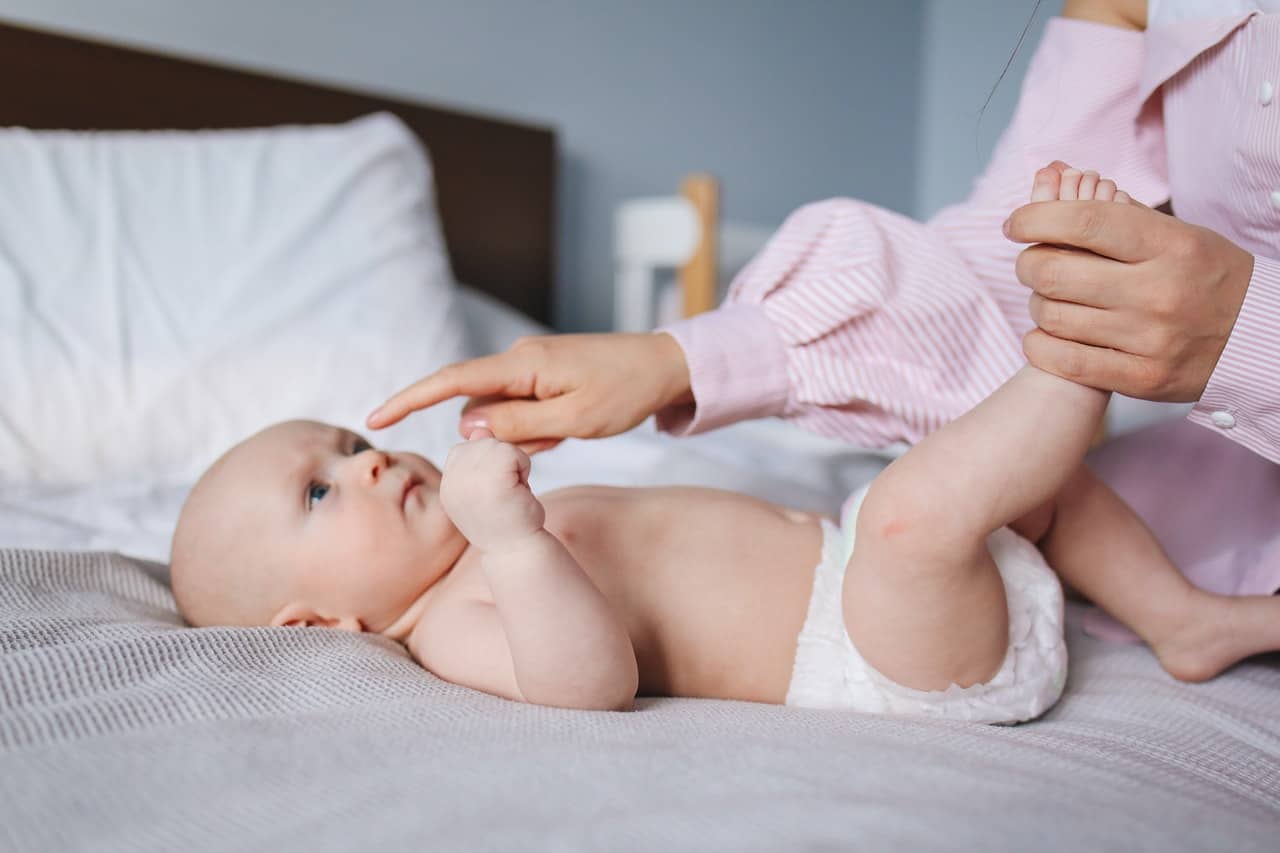As a newborn mother, you probably wonder what type of diapers to choose for your baby, especially one that won’t hurt mother nature.
You have seen the landfill overflowing with diapers and feel your time will be different. Now the question on your mind is, are disposable diapers biodegradable?
Are they? Unfortunately no, disposable diapers are not biodegradable.
The truth is we see it every day in different corners and parts of the town, how the landfills are piled with used baby diapers, which are not showing any sign of decomposition.
Yet, more babies keep using diapers, and more diapers are being thrown into the trash daily.
Diapers are made of plastic-based materials, especially conventional single-use diapers, and they are not degradable.
They are mainly composed of polyethylene, polymer, polyester, stearyl alcohol, and many other petroleum-based ingredients. These combinations are harmful to the environment and hardly break down.
How long do disposable diapers take to decompose?
To be candid, ever since the inception of diaper use, no one has yet seen a decomposed diaper on landfills. And it has been estimated that diapers take about 500 years to decompose; that’s not even enough time to have witnessed the first diaper spoil since it has only been almost 73 years since diapers were introduced to the market.
No one can tell how long it takes to degrade, yet more and more diapers are being used and disposed of regularly, and diapers make a faction of the piles of waste on every landfill today.
How bad are disposable diapers for the environment?
Disposable diapers are very bad for the environment. It’s worse when manufacturers call it green, eco-friendly, and safe, yet at the end of every single use, it ends up on a heap of trash, creating an environmental menace.
Different alternatives are rolled out yearly to curb disposable diapers’ ecological impact; one of these alternatives is single-use compostable diapers.
These seem eco-friendlier because they are made with sustainable materials, but the story remains the same if they are not properly composted.
And not all family truly understands the process of composting a compostable diaper.
This brings us back to the initial spot of piling the landfill with used diapers; only now do we have compostable diapers contributing to the mess.
The misleading product adverts also influence the rate of purchase as everyone seems to look for alternatives to single-use diapers, hoping that the diapers, because they are termed “biodegradable,” will decompose in the landfills, but in real terms, do not come close to decomposing after lots of years because they are all made of plastic.
This brings us back to the board asking if single-use diapers are truly degradable.
What are the most eco-friendly disposable diapers?
While we can’t ascertain that there are many eco-friendly disposable diapers, some brands are known for producing eco-friendly diapers, although they degrade at different levels and conditions.
However, choosing these compostable, eco-friendly diapers will require you to find out if there is any composting company around you engaged in composting used diapers.
It is one thing to invest in compostable diapers; it is another essential thing to compost the used diapers correctly.
That said, Eco by Naty diapers are one of the few compostable diaper brands you can find on the market.
They are certified eco-friendly and chemical-free, which reduces environmental impacts to an extent.
A composting company (Nature’s Premiere) confirmed to have compost the diapers and going by that, and it is believed that the Eco by Naty diapers is genuinely compostable.
Poof diapers, on the other hand, are made from plant-based ingredients like corn and bamboo and are said to be chemical-free and hypoallergenic.
Though, they can only be composted in commercial composting facilities and not home composts. Bamboo nature diapers are also compostable, but they are made with some plastic-based materials that may need to be removed before composting. Because this may require extra effort, finding a facility that accepts this type of used diapers may be complex.
Other eco-friendly diaper brands may include Eco pea, Dyper, Healthy nest, and happy little camper, all made from plant-based materials and claimed to be hypoallergenic and chemical-free.
Are eco-friendly diapers worth it?
Well, thinking that diapers can’t be written off because it has brought much relief to parents, eco-friendly diapers may save the day and the environment at large.
There are few reasons, however, why eco-friendly diapers may worth the hype. Some of the reasons include:
They are chemical and fragrance-free: and, therefore, may not release toxins when disposed of or composted. Because they are green, they are strictly made of healthy biodegradable materials with no trace of dye or latex, which may negatively impact the environment.
Functionality: Being compostable or ecofriendly does not reduce the function of ecofriendly diapers as they are still designed to hold the baby’s urine and feces without leaks comfortably.
One major issue with eco-friendly diapers is the high cost compared to regular diapers. But when you reach the hazards, the environment is exposed to, and it is a sacrifice every nature-loving mother can bear to make.
Why are reusable diapers not much better?
While reusable diapers may seem like a cheaper alternative, it is not safe for your baby. It exposes the baby’s skin to rashes, allergies, infections, and other skin problems caused by the diapers’ chemicals.
In conclusion, while there are varieties of disposable baby diapers in the market today, not all these diapers are biodegradable; some are compostable, some are reasonably biodegradable, while the standard single-use disposable diapers are not biodegradable.
But if you are bothered about the impact of these diapers on the environment. However, if you’d like the best eco-friendly diaper suggestion, reusable cloth diapers remain the best any day.
Feel free to use any method that works best for you while keeping in mind that the environment needs to be equally kept safe.

